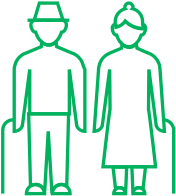Caregiving Resource Center
Family caregivers tend to the health and well-being of their aging parents, spouses and other loved ones, often while juggling careers, children and other obligations. Below are some key resources to help you better navigate caregiving.








